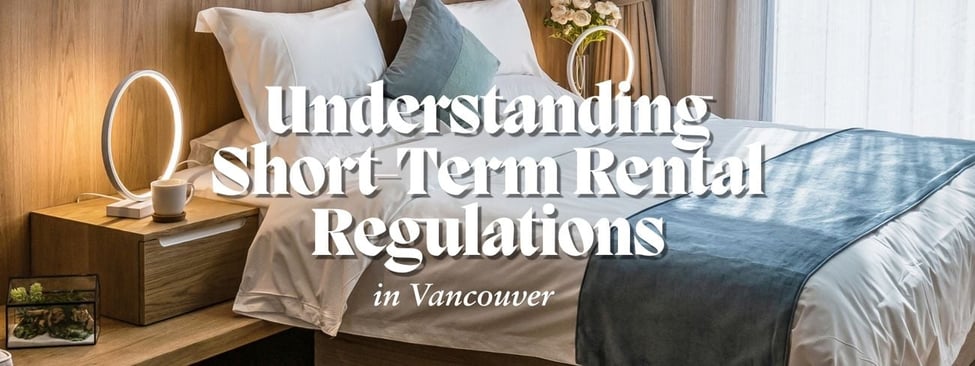If you're considering purchasing a property for short-term rentals (Airbnb, Vrbo, etc.), it's crucial to understand and comply with both City of Vancouver bylaws and Provincial regulations. Below is a summary of key rules you need to know.
City of Vancouver Bylaws on Short-Term Rentals
The City of Vancouver defines a short-term rental as any rental under 90 consecutive days and only allows STRs from an owner’s principal residence—the home where you live for the majority of the year.
Key STR Licensing Requirements:
- You must live in the property as your primary residence.
- Basement suites and secondary homes can only be rented if you live there full-time.
- A short-term rental business license is required and must be displayed in all online listings.
- Your strata bylaws or landlord must permit STRs.
- Fines for non-compliance can be up to $1,000 per offence (plus an additional $3,000 fine from the Province).
STR Licensing Costs (2024):
- Annual fee: $1,000
- Application fee: $70 (non-refundable)
Provincial Regulations (Effective October 16, 2023)
The Short-Term Rental Accommodations Act introduced by the Province of BC aligns with the City’s existing STR rules but also brings stricter enforcement and platform oversight:
- Platforms like Airbnb must share host data with the Province starting in Summer 2024, making enforcement more robust.
- 30-day rentals no longer bypass the principal residence rule—anything under 90 days is now considered a short-term rental.
- Non-compliant operators face major fines and potential shutdowns.
Can You Still Do Short-Term Rentals Under These Rules?
Yes—if you work STRs into your lifestyle rather than treating them as a full-time investment property. The Province’s new rules aim to stop commercial Airbnb operators from removing long-term rental supply but still allow homeowners to rent their residences when they’re away.
Here are some fully legal STR scenarios in Vancouver:
✅ Frequent Traveler – If you travel for work or take extended vacations (e.g., summer in Europe, winter in Mexico), you can rent out your home while you're away.
✅ House Hacking – Renting out a second bedroom in your condo while you live there can help cover your mortgage, plus you can list your whole unit while you're on vacation.
✅ Cabin & City Swap – Own a cabin in an exempt area (e.g., Gambier Island) and rent your downtown condo while spending time at the cabin.
✅ Rotating Work Schedule – If you work in shifts (e.g., two weeks away, two weeks home), your unit qualifies as your principal residence, making STRs legal while you’re gone.
STR Restrictions to Keep in Mind
- Buildings must allow STRs – Strata bylaws can override city & provincial rules.
- Maximum recommended Airbnb use: 180 days/year (not officially stated in bylaws but helps avoid scrutiny).
- Enforcement is tightening – Don't try to bypass the rules, as violations will likely be flagged by new reporting systems.
Final Thoughts
If you’re planning to purchase a property with the intent to run a short-term rental, it's essential to verify the latest strata bylaws and ensure you comply with both City and Provincial regulations.
Have questions about short-term rental-friendly buildings? Feel free to reach out, and I’d be happy to guide you through the best options!


